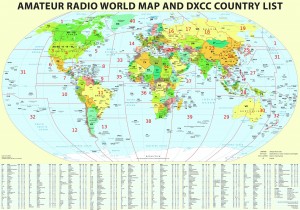Why are Amateur Radio Operators also called “Hams”?-
Ham: a poor operator; a ‘plug’ (G. M. Dodge; The Telegraph Instructor)
The first wireless operators were landline telegraphers who left their offices to go to sea or to man the coastal stations. They brought with them their language and much of the tradition of their older profession. In those early days, every station occupied the whole spectrum with its broad spark signal. Government stations, ships, coastal stations and the increasingly numerous amateur operators all competed for time and signal supremacy in each other’s receivers. Many of the amateur stations were very powerful. Two amateurs, working each other across town, could effectively jam all the other operations in the area. Frustrated commercial operators would refer to the ham radio interference by calling them “hams.” Amateurs, possibly unfamiliar with the real meaning of the term, picked it up and applied it to themselves. As the years advanced, the original meaning has completely disappeared.
